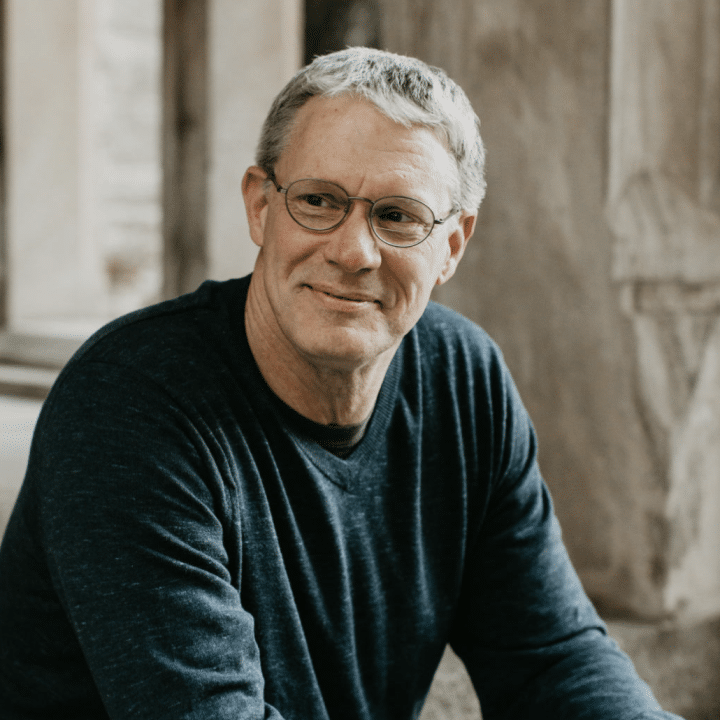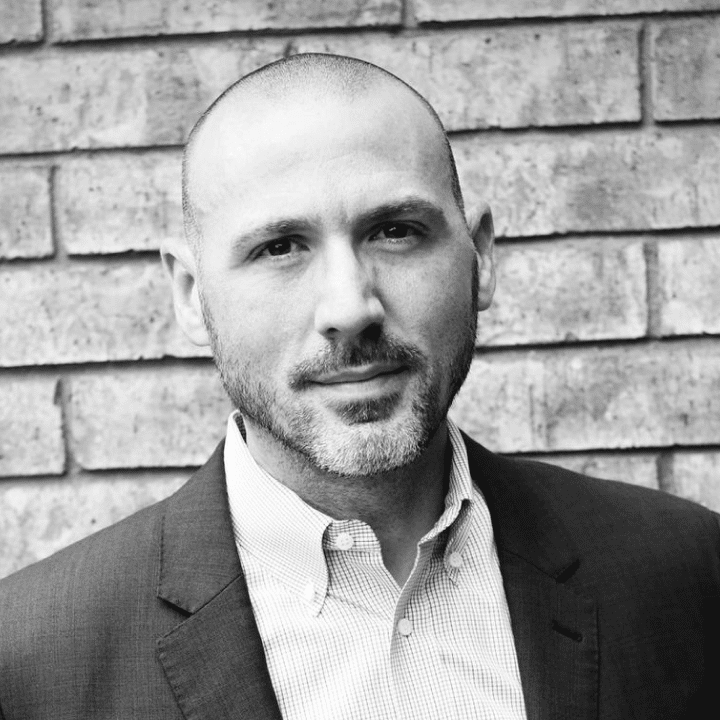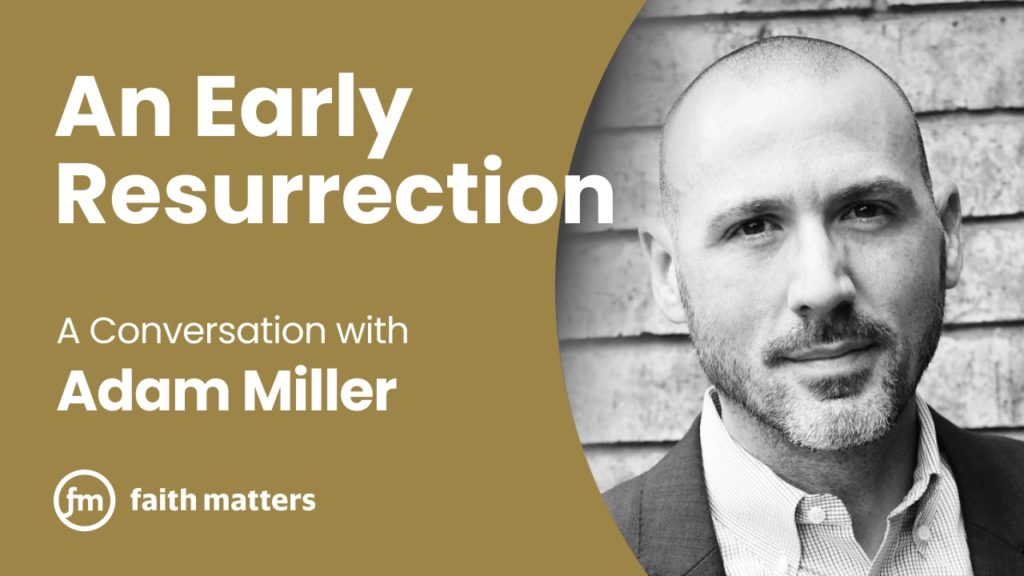Carol Lynn Pearson is well known poet, author, playwright, screenwriter, and speaker, to which we owe such Latter-day Saint treasures as the 1970’s play, My Turn on Earth, and I’ll Walk with You from the Children’s Songbook. Her most recent book, The Ghost of Eternal Polygamy: Haunting the Hearts and Heaven of Mormon Women and Men, explores her own personal struggle and the shared experiences of more than 8000 respondents. With honor for our ancestors and church leaders, Carol Lynn offers her own conclusions and prescriptions for moving forward in hope and faith.
Today is not a good day to defend the abuse of women. Today is a very good day for all organizations, all churches–including ours–to examine themselves carefully for the attitudes, the teachings and the practices that place men and women on very uneven ground and make women feel that they have been badly treated, sometimes in ways that make them weep in the night. To my experience the confusing past and the presumed eternal future we Latter-day Saints have with the doctrine of polygamy is a sad anachronism in the midst of the many splendid teachings offered by our church.
My long and abusive relationship with polygamy began in the 50’s when I was a student at BY High School in Provo. I have an indelible memory of the day our much-loved seminary teacher spoke to us in a very serious tone, telling us of his conviction that in the next world he would claim for eternity both of the women he had been sealed to on this earth, his first wife who had passed away and his current wife. “I bear you my testimony,” he said, “that the principle of plural marriage restored by the prophet Joseph Smith is the true pattern of marriage and that God our Father has a multiplicity of wives. I know this may sound strange to you young people, especially you young women, but I know that as you mature in faith and in unselfishness, you will understand and yearn to live this principle.”
I remember walking home from school that day with a strange new chill in my heart, a split I’d never known between me and God. This is what Heavenly Father wants for me? For years I prayed and studied and quizzed my professors at BYU. In freshman English we had to write a theme on “a fate worse than death.” I wrote on polygamy because it continued long after death. My teacher, Bruce B. Clark, gave me an “A” and called me in for a visit. Nothing that he said or that anyone else said could ease the awfulness. I knew that I was good. I knew that I was smart. But somehow, being female, I was destined eternally to receive second prize. To be second prize. To be, if I was sufficiently righteous, in that sweetest, most intimate relationship we all long for—one of many. Many a prayer in my college days at BYU was said through tears.
Life went on. Marriage came. Children came. A move from Utah to California came. The distress around polygamy did not always have center stage, but it was certainly there in the wings just waiting to make an appearance. I have a strong memory of about thirty years ago when a group of local LDS women began meeting monthly at my house, all of us devoted to the church, all of us wanting to address what we felt was a clear valuing of maleness over femaleness. We were going to be “anxiously engaged in a good cause.” On a large sheet of butcher paper taped to the wall of my front room we wrote with a black sharpie the problems we saw in our church that caused us pain. At the top of the list in bold capital letters and with an exclamation point: POLYGAMY!
“We just need to write to the general authorities and tell them how much it hurts us,” said sweet and naive Christy. “If only they knew, surely they would get rid of it!”
That same group of women, gradually becoming five, still meets monthly at my house. Next Thursday it’s my turn to provide the food. Kathleen has requested my garlic/rosemary/chicken spaghetti. Mormon issues still come up in our conversation as we sit by the fire, along with everything else women talk about. But I’m the only one who is still active in the church. I’m the only one who is still working within the church on the issues that first brought us together. And yes, POLYGAMY! is still at the top of the list.
Thirty years ago when we women first met, the presence of polygamy in our history, our doctrine, our view of eternity was a crying shame. Today it is still a crying shame. The difference is that the world in general has become vastly more sensitive to how we view and treat women. And our church has become more sensitive too. In small things. But not in some of the big things. Certainly not in that top-of-the-list and written-in-black-capital letters thing. That we gave up plural marriage beginning in 1890 under penalty of complete destruction of the church is a fact. It is also a fact that we have never given up the doctrine or the anticipation of this practice in eternity.
When heaven has an earthquake you fall to your knees and feel through the rubble to find the pieces of God. In 1978 when my eternal, temple-blessed marriage shattered and everything that had been meaningful lay in jumbled shards around me, I had to slowly and carefully pick up every single piece and examine it, turning it over and over, to see if it was worthy to keep and to use in building a new house of meaning. As I gathered the broken pieces of God, I used only my own authority, only my own relationship with the divine, and the good, small voice that speaks inside me, to appraise them. I threw away many, and I kept many, assembling the bright pieces into One Great Thought that asked only, “Do I see God’s fingerprints on this? Does this piece feel godly? Does it speak of love?” That made it easy. I was forever finished with the insane attempt to love a God who hurts me. When I picked up the little piece of God-ordained polygamy, I smiled because there was no question. I thanked the God of Love, and I threw that piece away.
My choice is not between either honoring our founding prophet or acknowledging that he made a significant error. I choose both. I can love King David for “The Lord is my shepherd … ” even though this is the same man who arranged the death of Uriah after taking his wife Bathsheba in adultery. Quantum physics has proven light to be at once both wave and particle. Like David, Joseph was at once both a man of God and a man of earth, and he never claimed to be perfect. With polygamy now consigned in my mind as “error” rather than “God’s commandment,” I can love Joseph better for his acts and words of goodness: for his habit of giving away his boots and coming home again stocking footed; for leading his apostles in a snowball fight to “get up their spirits” before going back to work; for letting the Red Brick store go bankrupt because he could not turn away a customer who could not pay; for starting a theatre in Nauvoo and encouraging dancing; for his faith and courage, his love for his friends, and his vast vision of community. My life in the church, my life as a woman, became much warmer without the cold cloud of polygamy.
But as I continued to see so many of my sisters—and brothers—suffering under the burden of believing that plural marriage was a true principle, an essential part of God’s plan, I found myself angry on their behalf. The conversation that finally moved me to action was a visit with a cousin in her nineties whose devoted husband had died a few years before. I asked if she looked forward to seeing him on the other side. “Yes,” she said, and then her face grew troubled. “But—I wonder if he’s taken a second wife already.”
“No!” I said.
“Well,” she shrugged helplessly. “That’s what we’re taught.”
My cousin was right. That is what we’re taught. And once again it washed over me how much unspeakable damage is done by the ongoing presence of the doctrine that Brother Joseph introduced into our lives. Yes, God’s ways are not man’s ways, but also “by their fruits ye shall know them.” The bad fruits of polygamy are many.
Examining our history with plural marriage, I do not find God’s fingerprints on any part of it. Not on the dishonesty and disregard with which Emma was treated by her husband. Not on the interference in the happy marriage of Zina Huntington to Henry Jacobs that arose when Brother Joseph determined he wanted Zina for a wife in his own spiritual family. Not on the pressure brought to bear on numerous other women to become Joseph’s wives even though many felt, as one wrote, that she was called to “place myself upon the altar a living sacrifice.” (footnote: see 1 below) Not on the breach in the marriage of my own great-grandparents in Paris, Idaho, after Brigham Young gave a sermon there in 1873 stating “where a man in this Church says, ‘I don’t want but one wife’. . . [when he gets to the celestial kingdom] he will not find himself in possession of any wife at all.” (footnote: see 2 below) James Oakey, who had until that time refused to enter plural marriage, soon brought home a second wife and my great-grandmother Mary left him.
God’s fingerprints, I believe, are not on the explanation many accepted in Nauvoo and in Utah that the greater the number of wives, the greater a man’s exaltation in heaven. Rather like a spiritual pyramid opportunity: a man gets in at the bottom and begins to build his organization—as many wives as he can manage, as many children as possible who have more wives and more children, each level pushing him higher and higher in the heavenly realms. Using and abusing women as tools for the benefit of men was endemic to the practice of polygamy.
Not long ago I asked an LDS scholar, “Tell me one good fruit that came from Mormon polygamy.”
“Me!” he said brightly.
I too come from a second wife, Mary Ann Fryer, who married Joseph Wright at the strong recommendation of Brigham Young so that Joseph could leave his first wife Hannah and their six children and go south to help settle Utah’s Dixie with a younger wife. The scholar and I might both say:
I am good.
I am a product of polygamy.
Therefore polygamy was good.
And many thousands could say:
I am good.
My parents met because of the Second World War.
Therefore the Second World War was good.
In my BYU logics class, this is what I learned was a false syllogism. And I have yet to find a good fruit that came from Mormon polygamy. I can, however, honor our ancestors, women and men, who gave their all to carrying out what they believed to be a commandment from the Lord.
I left my cousin’s house with my passion for standing up for women reignited and I began a new project. In March of 2014 I conducted a social media survey asking members and former members of the church, women and men, to express their feelings regarding the concept of eternal polygamy and the inequality in the sealing practices. On day one more than 2400 people took the survey. When we closed it four weeks later over 8000 had responded. Anonymous stories were left by more than 2500 people, and I read every one of them. The vast majority expressed significant personal pain and told stories that broke my heart. God’s fingerprints are found on none of them. And none of them speak of God’s love.
Here are a few excerpts from the survey:
“I remember sobbing in the bathroom of the seminary building when we studied Section 132 of the D&C.”
“The anxiety is always there. I’ve been to my doctor nearly every month in the last year about some symptom or another—because, surely, if we catch the cancer early, I won’t die and my husband won’t get remarried in the temple and I won’t have to live polygamy for ever and ever and ever. It’s simple. And real. It’s my painful truth.”
“As an adolescent male teen, I found the thought of multiple sex partners very cool and sexually arousing when I learned about polygamy in seminary. Adult maturity gave an understanding of the unfairness polygamy brings to the woman, because it makes her the property of a man. Women are to be collected—and maybe even traded—like baseball cards.”
“I have this vague terror of being erased, like I am just an interchangeable cog, and that terror keeps me awake late at night.”
“Our legacy of polygamy invites doubt. Not just doubt in God, but doubt in the safety and stability of our most private, precious relationships. It suggests to women that what amounts to deep betrayal may come to us at any moment, and that our feelings of anguish would be yet another sacrifice on the altar of devotion.”
“As a sealed widow, I feel like a leper in the LDS dating pool. And I get it. Who wants to love someone and then have them given to someone else in heaven?”
“This eternal polygamy thing brings sealing policies that damage men as well as women. My oldest son, who all of his life has been an active, worthy member of the church, is married to a wonderful woman who was widowed at age twenty-one. They now have two children together, who are not sealed to their own father but to a man they don’t know. My son’s heart aches to be a part of the eternal family that he was always promised by the church he believes in. He now feels his mission was wasted by teaching people they could be with their families forever. He can’t, and for no fault of his own.”
“By my senior year in high school, the knowledge that women were eternal chattel was a thorn wedged deeply into my soul. The adolescent female psyche is a fragile thing. It doesn’t take much for a young girl to feel bad about herself. I had become completely convinced that marriage was not something to look forward to, but rather the kick-off to a future of being owned by my priesthood-holding, exaltation-bound husband who would marry other women who would join my eternal marriage in the afterlife.”
“Bludgeon is the right term. I have felt bludgeoned with polygamy!”
“The prospect of eternal polygamy makes me wonder if the celestial kingdom is a heaven for women or a hell. In all honesty, I would rather be an angel with good, honest work to do, rather than being in the celestial kingdom, silent, polygamous, and eternally pregnant.”
“The husband-wife relationship is clearly compromised when women have to share their husband, even as a possibility, even on paper. I love my husband dearly, but I have always unintentionally held back a part of my heart and soul because of the terrible thought that he is not fully mine.”
“Knowing that you may have to watch your beloved also love another someday—even by commandment! — makes you hold back, just a little, so that something of you can be left when the blow comes.”
“I have been a bishop and I see the damage that Mormon polygamy still inflicts. Many are leaving the fold, and marriages are being destroyed. Sadly, we continue to give preferential privilege to men while perpetuating suffering upon women.”
“I am a life-long, temple-attending, active, male member of the church. Polygamy is the subject that makes me saddest, angriest, and most bewildered. The inherent sexism and unfairness of it contradicts most of the core doctrines of love, charity, and the worth of ‘each soul’ that I cherish. The thought of eternal polygamy diminishes my hope for the afterlife and my trust in the LDS depiction of God.”
Here are some of the words that came up again and again from the women who took my survey: “I feel—violated. . . intimidated. . . held hostage . . . used . . . threatened . . . crazy . . . terrified . . . powerless . . . shamed . . . insulted . . . devalued . . . crushed . . . voiceless . . . inadequate . . . without dignity . . . hopeless . . . soul sick . . . .”
In the Book of Mormon we read, regarding the Nephite men taking more than one wife: “Ye have broken the hearts of your tender wives . . . and the sobbings of their hearts ascend up to God against you.” (Jacob 2:35). Polygamy delayed is still polygamy, and the sobbings of the hearts of many tender LDS women continue to ascend up to God.
The stories referenced above and many others were published in 2016 in my book The Ghost of Eternal Polygamy: Haunting the Hearts and Heaven of Mormon Women and Men.
Days after I had given a pre-publication copy of the book to my then bishop, he said to me at our 24th of July picnic in the park, “I haven’t finished the book yet, but my wife has and it has already blessed her life, so I thank you for it. She has wept over this subject.”
Here’s another story from a very dear couple in my ward (Shelly said she would love to have her name used). I also gave a pre-publication copy to her and her husband, asking for feedback. When next we spoke, this is what Shelly told me:
“I finished the book and then I gave it to my husband. I was in the kitchen when he came in holding the book, and he said, ‘I just finished reading this. All those stories about women’s pain. Shelly, have you felt this way too?’ I nodded. He put his arms around me and began to cry. I cried too. We just stood there in the kitchen crying together.”
In a couple of weeks when I saw Shelly at church, I hugged her and whispered, “How’s your marriage these days?”
Speaking through a huge smile, she said, “Amazing. I snuggle up to my honey in bed and I whisper in his ear, ‘You are mine! All mine!’ I could never have said that before.”
I have since heard from hundreds of readers who gave a similar appreciation for finding something that helped free them from a terrible sorrow. And, for many, the stories I shared provided a way to get rid of polygamy and at the same time continue to love the Prophet Joseph and our church.
Today is not a good day to defend the abuse of women.
But we are better than this. And I believe we are ready to do better. We are caught in a dark web of past errors, but we are a strong people and we have the power to help correct those errors and assist in creating a church that feels more Christlike, a community that feels safer for everyone.
What will it cost us to make this shift?
It will require us to accept a change even more significant than the one that gave our black brothers and sisters priesthood and temple privileges. Of that change, historian Richard Bushman said in an interview with the Salt Lake Tribune that the new (2013) statement
“drains the ban of revelatory significance, makes it something that just grew up and, in time, had to be eliminated . . . [and this] requires a deep reorientation of Mormon thinking. [If Brigham Young could make a serious error] it brings into question all of the prophet’s inspiration. [Members need to recognize that God can] work through imperfect instruments. For many Latter-day Saints, that is going to be a difficult transition. But it is part of our maturation as a church.”(footnote: see 3 below)
And what will we gain from making this shift?
When the ghost of eternal polygamy is finally banished from the LDS landscape, each young and tender girl will learn at church and at home that if she marries she will become the singular and full partner of a husband of her choice and that her divine nature and individual worth are such that she will never be “one of,” here or in heaven. The writings and the folklore around polygamy will have been put away in the drawer marked “expired,” and will generate no more fear than ghost stories told around the campfire.
We will feel more open to the presence of our long-lost Heavenly Mother, for there will be no question that She is the Father’s full and sole partner in the creating and sustaining of life.
Marriages will be sweeter, with no holding back a piece of the heart just in case. An elderly widow will spend her last days with peace of mind and no disquieting thought of “I wonder if he has taken another wife already.” A husband will invest fully in his one and precious partner, with never a thought that she is not enough here or will be added to in heaven.
A sealed widow will be able to mourn her loss, and then, if she wishes, look forward to a new relationship in which she can be seen as the desirable woman that she is, unobstructed by prior attachment. Her love for a past husband and a present husband do not conflict, for she knows that God is not asking her to make impossible choices, and that in heaven there will be many happy surprises.
The claim of our church that we create and support strong families will be even more true, as the ruptures and the tensions produced by the anticipation of polygamy will have ceased. True partnership in marriage will be more easily created as men and women stand on more equal ground. Parents and children will feel more secure, never uneasy about who they will “be with” in eternity.
And intertwined with every benefit will be the supreme one, the shedding of an old and debilitating distrust in a God that for many faithful LDS women and men has brought untenable spiritual and theological dissonance. A God who has prepared an eternity that will render women forever subordinate will be dismissed as preposterous. We will see with more clarity and with deeper appreciation the one in the mirror, the one on the other side of the bed, and the One who created us in the first place. Having removed from our wagon something heavy and useless and harmful, we will find a new buoyancy that will make us a stronger people, a people better prepared to continue our journey to Zion.
1-“place myself upon the altar” Todd Compton, In Sacred Loneliness: The Plural Wives of Joseph Smith (Salt Lake City: Signature Books, 1997), 464.
2- “no wife at all”: Brigham Young, “Discourse by President Brigham Young, delivered in the Bowery, at Paris, Oneida County, Idaho, August 31, 1873,” in Watt, et al, Journal of Discourses, 16:22.
3-Bushman statement priesthood ban: Peggy Fletcher Stack, “Mormon church traces black priesthood ban to Brigham Young,” Salt Lake Tribune, December 16, 2013.



